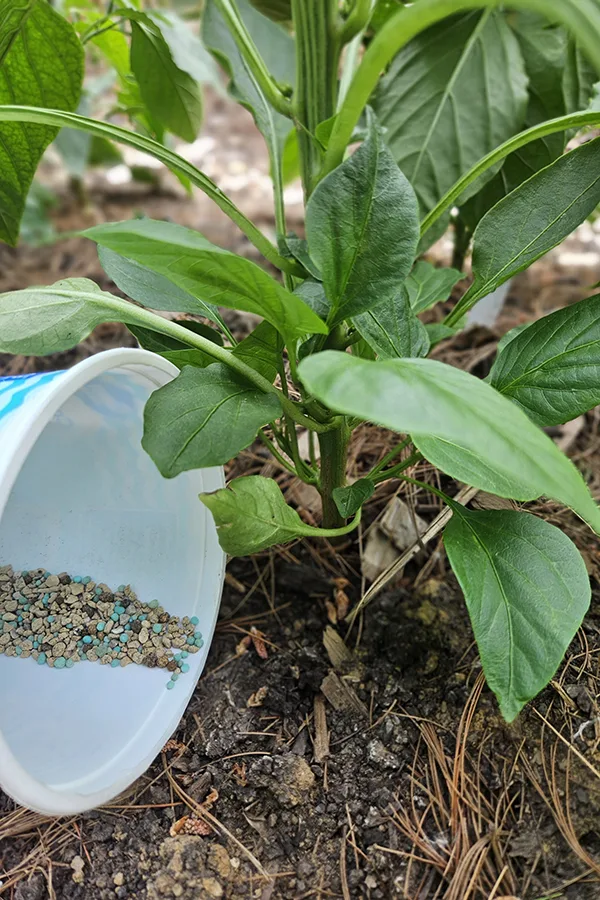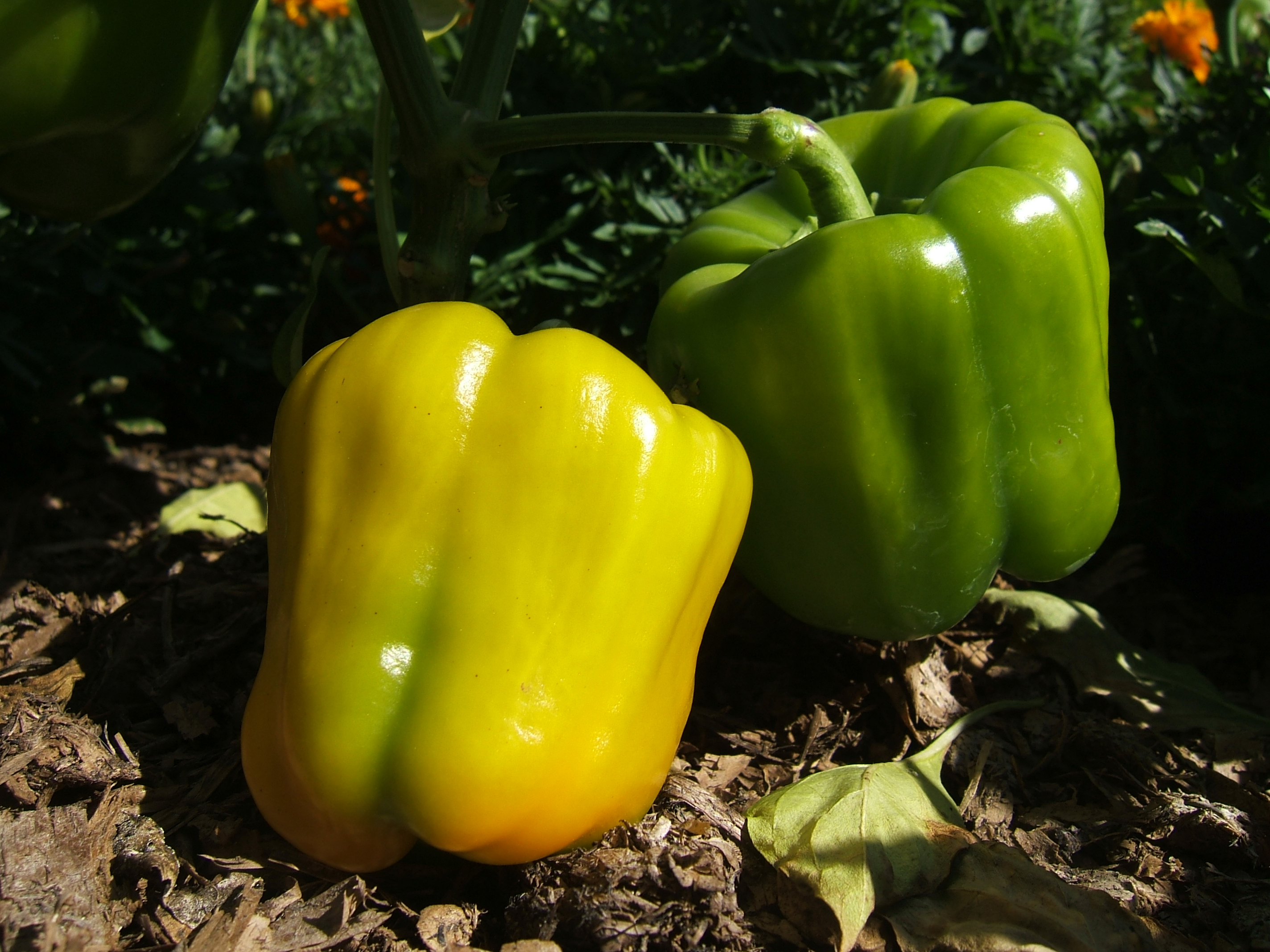Just How Fertilizers Play an Important Function in Cultivating Plentiful and healthy Pepper Crops
Fertilizers function as the foundation of successful pepper cultivation, providing a strategic method to nurturing the soil and promoting optimum plant growth. The elaborate dancing in between vital nutrients and the pepper plants' physiological procedures emphasizes the pivotal function that fertilizers play in guaranteeing an abundant harvest. From fueling robust origin growth to bolstering illness resistance, the influence of fertilizers is far-ranging in the growing of healthy and fruitful pepper crops. Keep tuned to reveal the nuanced methods which plant foods add to the flourishing of pepper plants and the sustainable practices that underpin their effectiveness.
Value of Nutrient-Rich Fertilizers
The usage of nutrient-rich fertilizers plays a critical role in boosting the productivity and top quality of pepper crops in modern-day agricultural techniques. Pepper plants require a well balanced mix of essential nutrients to thrive and generate high returns of high quality fruits. Potassium, phosphorus, and nitrogen are primary nutrients that are important for the development and growth of pepper plants. Nitrogen help in leafy eco-friendly growth and overall plant vitality, phosphorus supports root advancement and blossom production, while potassium adds to disease resistance and fruit quality.
Insufficient levels of these nutrients can bring about stunted growth, minimized yields, and vulnerability to diseases (best fertilizers for peppers). Nutrient-rich fertilizers give a targeted option to ensure that pepper plants obtain the necessary components for optimum growth and efficiency. In addition, these plant foods assist boost dirt fertility in time, developing a lasting setting for long-term pepper growing
Enhancing Plant Development and Growth
To enhance plant growth and development in pepper plants, strategic application of nutrient-rich fertilizers is vital. Plant foods play a crucial duty in enhancing the general wellness and performance of pepper plants by providing them with essential nutrients that may be lacking in the dirt.
Iron, for instance, is needed for chlorophyll production, which is vital for photosynthesis and general plant development. Zinc plays an important role in enzyme activity and hormone synthesis, affecting plant growth and development at a cellular level.

Boosting Illness Resistance With Fertilizers
By purposefully including targeted fertilizers, farmers can bolster the condition resistance of pepper crops, making certain optimal plant wellness and productivity. Plant foods consisting of crucial nutrients like nitrogen, phosphorus, and potassium play an important duty in reinforcing pepper plants' immune systems, making them extra resistant to various conditions. Nitrogen, as an example, help in the manufacturing of proteins that are important for plant defense systems. Phosphorus adds to root growth, enabling plants to better soak up nutrients and water, therefore improving their capability to repel illness. Potassium regulates processes that improve total plant health, making peppers much more durable against microorganisms.

Maximizing Pepper Yield Via Fertilization
Making use of a well balanced fertilizing method is key to accomplishing optimum pepper yield and making sure optimal crop performance. By offering peppers visit here with the ideal nutrients at the correct time, farmers can significantly enhance their yield possibility. Potassium, phosphorus, and nitrogen are crucial components for pepper growth, with nitrogen assisting in leaf and stem development, phosphorus supporting root development and blossom formation, and potassium advertising total plant health.
To optimize pepper return, it is essential to conduct dirt examinations to establish existing nutrition levels and determine any kind of shortages that need to be addressed. Based upon these results, farmers can establish a customized fertilizing plan that satisfies the specific demands of their pepper plants. Additionally, proper fertilization strategies such as split applications throughout the growing period can make sure constant vitamins and mineral availability for the plants.

Sustainable Fertilizer Practices for Peppers
In thinking about lasting plant food techniques for peppers, it is critical to concentrate on long-lasting dirt wellness and environmental stewardship in conjunction with making the most of crop productivity. One vital method is the use of organic plant foods such as garden compost, manure, or cover plants, which not just give necessary nutrients to the peppers internet yet likewise contribute to soil structure and microbial task. best fertilizers for peppers.
In addition, precision farming techniques, such as dirt screening and targeted nutrient applications, can help maximize fertilizer use, making sure that peppers get the nutrients they require without excess drainage into waterways. This not just profits the atmosphere by reducing air pollution but likewise conserves expenses for farmers by reducing waste. By embracing sustainable plant food techniques, pepper cultivators can guard the health and wellness of their plants, soil, and surrounding ecosystems for future generations.
Verdict
Finally, plant foods are necessary for growing abundant and healthy and balanced pepper crops. best fertilizers for peppers. They offer required nutrients for plant growth and growth, increase condition resistance, and make the most of yield. By implementing lasting plant food techniques, farmers can make sure the lasting health and wellness of their pepper plants and add to a more environmentally-friendly and effective farming system
The elaborate dance between necessary nutrients and the pepper plants' physical procedures underscores the essential function that plant foods play in making certain a plentiful harvest.To enhance plant growth and development in pepper crops, tactical application next of nutrient-rich plant foods is crucial. Fertilizers play a vital role in boosting the total wellness and productivity of pepper plants by supplying them with important nutrients that might be lacking in the soil.By strategically integrating targeted fertilizers, farmers can bolster the disease resistance of pepper crops, making certain optimum plant health and efficiency. Plant foods having vital nutrients like phosphorus, potassium, and nitrogen play a vital function in enhancing pepper plants' immune systems, making them more resilient to numerous illness.